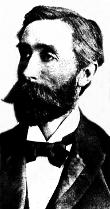Dr Charles MacCarthy premiered Lady Nora at Her Majesty's Theatre, Sydney in June 1907 for copyright purposes. He had previously been encouraged to complete and produce the work by the late Leon Caron. The plot, which has its dialogue written in prose verse by Harry Taylor, concerns a rising young sculpture and his sweetheart.
The first act is set in London, and included scenes in an artist's studio and at a charity ball held in a fashionable house. The second act transfers the narrative to a residence beside the Upper Lake of Killarney.
The Sydney critics were generally positive in their assessment of the opera's merits, despite the production being essentially a reading with vocal performances (the participants read from scripts and did not act). The Evening News review records, for example:
Dr. Charles MacCarthy, whose skill in painting and modelling is well known has carried his artistic temperament into the domain of opera. He has composed a work which, with an adequate cast and appropriate dressing, should become extremely popular…. The general impression was that the score contains many graceful melodies, and much richly harmonised orchestral and choral music ('Lady Nora,' p.6).
The Sydney Morning Herald's music critic also said of the work, which was presented before a large crowd of invited guests:
Generally speaking the dialogue suggested rather old-fashioned romantic drama, the slight plot dealing with the love of Gerald Desmond (baritone), a rising young sculpture, for Lady Nora Riverston, with the generosity of Cornelius A. Grunther, of Chicago, in paying £10,000 to rescue the hero from the clutches of Samuel Slim, moneylender, and with various complications, in which a sporting Johnnie, a prospective pillar of the church, a variety artist, a dancer, a model, and certain society ladies were concerned ('Comic Opera,' p. 3).
The Herald also records that the opera contained 37 musical numbers. Those identified to date are: "Oh Beloved, Come Again" The Hunting Chorus (march), "The Fleeting Joys of Spring," "When Shadows of Evening Fall," "Come Let's Be Dancing," "Joyous and Gay," "The Language of the Rose," "The Great Society Introducer," "Joy Bells," "Nora, Asthore," "Dance of the Fairies," "Evening Bells" (quintet), a cakewalk, and "Happy Young Lovers."


